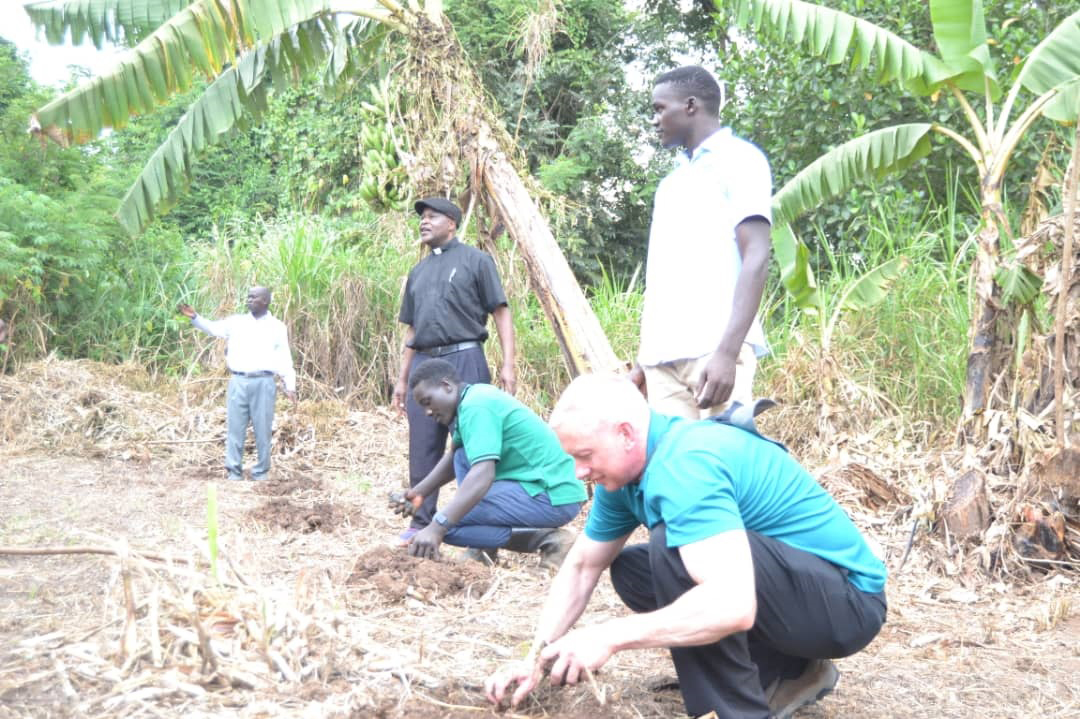CSOs, govt in drive to restore 70,000 hectares of trees

A man makes charcoal. Need for energy has put pressure on Uganda’s forests. PHOTO | FILE
Civil society organisations (CSOs) biased to implementing climate change initiatives have together with government embarked on a Shs15 billion drive to restore at least 70,000 hectares of trees that were previously lost in the Albertine-rift region.
Code named “Forest Restoration and Carbon Absorption” (FRECAR) held under the World Wide Fund (WWF), the campaign will be implemented under the watch and direct supervision of the National Forestry Authority (NFA).
The climate enthusiasts will throughout a five-year stretch spend the money on activities that include the restoration of lost forest cover, including Bugoma and Kagombe as well popularising the need for Ugandans to shun deforestation.
“On the overall, we have a target of 70,000 hectares of degraded forests. In Kagombe itself, we are looking at 4,000. In Bugoma 1,000 and 15,000 outside the protected areas with the communities,” Mr Philip Kihumuro, the FRECAR project manager said.
Speaking on behalf of the CSOs, Mr Kihumuro said the initiative will also include sensitising communities in the said region to embrace alternative energy sources and encourage them to plant fast-maturing trees for their own use.
“We look at forestry as an enterprise to reduce pressure on the forests that give alternatives for energy. If you are being tempted by high appetite for timber, can we give you fast-growing species for timber outside which you can sell and get a living, meet other economic needs and then leave the forests intact,” a Kihumuro said.
The drive comes at a time when communities, especially those trapped in regions that are prone to disasters, are pressing government for solid workable solutions to address the currents effects.
Many a time, government is cast in bad light for allegedly doing little to erect systems with solid mitigating measures for climate change.
The collaboration between CSOs and government is chiefly purposed to push for the implementation of Uganda’s National Determined Contributions (NDC) in managing and or averting climate change-triggered after effects.
A country’s NDCs are a set of formally outlined commitments highlighting the actions and initiatives that its government plans to undertake towards the realisation of the overall goals agreed upon in the Paris Agreement.
Even when Uganda has severally suffered the wrath of the downside of climate change, there appears to be slow response in the uptake of initiatives meant to insulate the country from negative effects.
This, climate change experts say, is chiefly due to insufficient funding for the sector as many times stakeholders struggle to locate the requisite funds for the campaigns.
Whereas Mr Kihumuro insists everyone is a stakeholder, Ms Jalia Namubiru, the programme’s director at Environmental Management for Livelihood Improvement says otherwise.
“Most of these policies are at national level and the communities don’t understand most of them like the NDCs and, therefore, don’t know how they can contribute to implement them,” Ms Namubiru said.
To this, Mr Kuhumuro said: “We also intend to develop the capacity of stakeholders to be able to understand their contribution towards what government has committed under the NDCs.”
Government plan
According to the minister for Relief, Disaster Preparedness and Refugees, Mr Hillary Onek, Cabinet has since endorsed a robust disaster risk management plan to detect and mitigate impending disasters across the country.
“We intend to confront the impending disasters by positioning ourselves regionally so that response doesn’t only come from Kampala,” Mr Onek revealed without sharing details.




